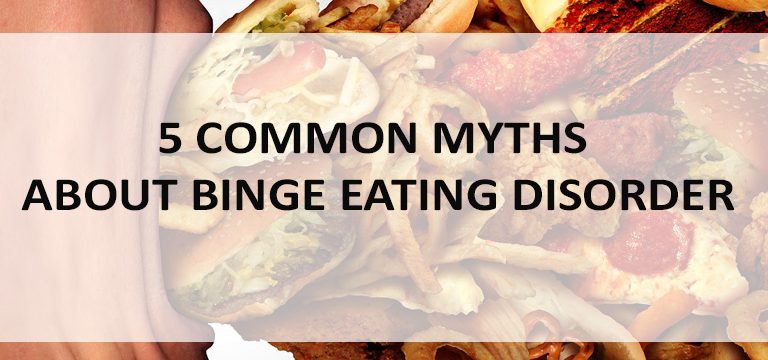If you think Bulimia and Anorexia are the only food-related disorders that affect people, then you probably haven’t known much about Binge Eating Disorder (BED). Healthline.com says that it can impact 2 percent of the people worldwide and yet it may remain unrecognized.
Binge Eating Disorder and its Symptoms
Unfortunately, a lot of people don’t know much about BED and if they do, they know the wrong definition.
It’s something beyond hunger. Doctors say that 3 or more of the following symptoms must be present for one to be diagnosed with BED:
- Eating faster than usual
- Eating until one is uncomfortably full
- The Eating even when you are not hungry
- Eating when feeling shameful or embarrassed to hide emotions
The people who are suffering from BED often experience extreme unhappiness. They are distressed about their overeating habits, their weight, and body shape.
Yes, we all tend to overeat at times (when we are on vacation, thanksgiving or at a party). But this does not mean you have BED even if you have experienced some of the symptoms mentioned above. You must have at least 1 binge eating episode a week for a minimum of 3 months to be diagnosed with this disorder.
Not to mention, people suffering from BED don’t usually show inappropriate compensatory behavior. Unlike bulimia patients, they don’t throw up, exercise or take laxatives to make up for their binging episode.
What Binge Eating is NOT?
These are some common misconceptions about this eating disorder debunked. In other words, the following does not relate to Binge eating:
1: BED is the same as overeating
No! The binge eating and overeating are two different things. Eating more than what you planned, sneaking in the kitchen to eat more cookies – these habits don’t count as binge eating. Yes, both involve some form of eating past the physical fullness but those who binge eat don’t have control while they are eating.
During the binge eating episode, they have lost control over the food they are consuming and they just can’t stop eating. While they are at it, they feel intense shame and guilt.
2: BED only impacts the overweight people
No, it’s not necessary. You could have a lean figure and you are binge eating. In fact, people of all body sizes could be impacted by this disorder. Plus, it’s not necessary that the person who binge eats also experiences weight gain. Because of body genetics, some people don’t gain weight.
Another problem is that those who haven’t gained weight might not know they have BED, to begin with. Such people might be at the brink of having health problems such as high cholesterol, high blood pressure or heart problems only explain their eating habits are unhealthy.
3: Fasting might help
Whether it’s dieting, weight loss attempts or fasting, nothing really stops a binge eater from eating. They might succeed occasionally by taking a break for binge eating. As we all know restricting the intake of food makes the brain and body crave more food. Hence, the binge eater goes back to their eating habits.
4: The person who binge eats hasn’t found the right diet
It’s not like the person who has BED hasn’t tried hard enough or haven’t found the right diet yet.
Just ask these individuals and they will tell you they have been on programs and yet experienced weight loss diets fail. And they have definitely lost weight but they revert to their eating habits.
For such people, weight loss is not the answer. Why? Because for them food is like a drug. It helps them cope with painful emotions and difficult times. They consider it a relief even though it’s temporary.
5: It only affects adults
It’s not just adults who are affected by being eating. This disorder has impacted 1.6 percent of the youth ages 6 to 18 years. It all starts from loss of control leading to an eating disorder that has huge unhealthy consequences.
The victims are mostly adolescents with depression and anxiety. They use eating as a coping mechanism to hide their feelings and emotions.
Conclusion
The way that you gain weight is similar to weight gain during pregnancy – it happens in phases or for some people, it can be abrupt.
Several health risks are associated with BED starting from physical, social to emotional. 50 percent of the people who have BED are also obese. With obesity comes the risk of type 2 diabetes, heart disease, stroke, and even cancer.
If you or your any loved one has BED, you will be glad to know that treatment options exist and they are mostly therapy.




